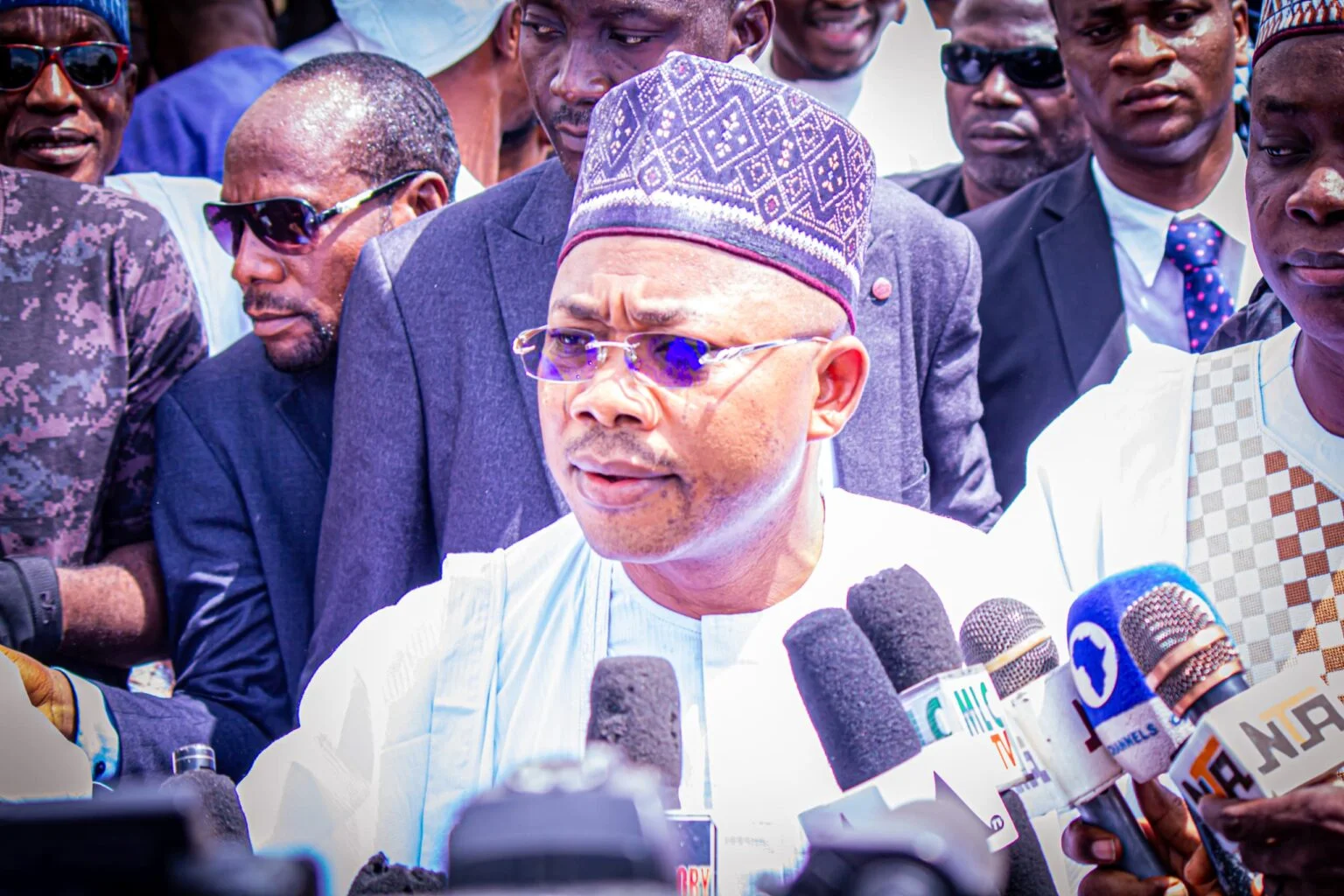Agriculture
AfCFTA: Expert Advocates Value Creation for Agro Products Before Export

A former Director General of Nigerian Association of Chambers of Commerce, Industry, Mines and Agriculture (NACCIMA), John Isemede, has said that for Nigeria to benefit from the African Continental Free Trade Area ( AfCFTA) it must add value to its agricultural products before export.
He noted that Nigeria is ripe to process raw/crude in finished products with value addition to run the chain with the rest of the world.
In an interview with newsmen, Isemede said, “For us to achieve this we must add value to our raw materials, remove all the restrictions, all the roadblocks, provides incentives and support to manufacturers.
“Ministries, Departments and Agencies (MDAs) instead of assisting and looking for markets are fighting, duplicating issues and often on revenue as well as selling certificates that often end in our ports as rejections galore.
While commenting on the 2022 Budget , he said, “When will Nigeria hit the ground running and think less of loans, aid from donors and support from those who are out for just one purpose of exploitation and subjugation?
“There is nowhere our national export strategic plans/ target to exporters appeared in the 2022 budget, but we can see loans, debt servicing; etc and none on national export inflows or what to expect from the latest AfCFTA gains as envisaged at the signing ceremony.”
Agriculture
NNPC Foundation Reiterates Commitment to Ensuring Food Security

The Nigerian National Petroleum Corporation (NNPC) Foundation has renewed its commitment to ensuring food security in the country.
Mrs Emmanuella Arukwe, Managing Director, NNPC Foundation, said this on Wednesday in her remarks during the training of vulnerable farmers in Akwa Ibom.
Arukwe said that 6, 000 farmers across the country would be trained on modern farming methods and market access strategies to boost food production in the country.
Arukwe, who was represented by Dr Bala David, Executive Director, Programme Development and Coordinator, NNPC Foundation, added that the Foundation was dedicated to implementing impactful programmes that aligned with national priorities.
She said that more than 500 farmers in Akwa Ibom were trained by the NNPC Ltd Agricultural Training Initiative for Vulnerable Farmers on modern methods and strategies to boost food production.
Arukwe added that the farmers were drawn from the state’s 31 local government areas to participate in the training to equip them with techniques and market access strategies to add value to their businesses.
“This programme is a testament to our unwavering commitment to food security, economic empowerment and national development.
“As the corporate social responsibility arm of NNPC Ltd, the Foundation is dedicated to implementing impactful programmes that align with national priorities.
“This initiative is part of our broader efforts to support the Federal Government’s agricultural transformation agenda, which seeks to enhance food security, increase productivity, and improve the livelihoods of smallholder farmers.
“Our goal is to equip every participant with the tools, knowledge, and resources needed to transition from subsistence farming to commercial-scale production,” Arukwe said.
In her remarks, Dr Offiong Offor, Commissioner for Agriculture and Rural Development, Akwa Ibom, thanked NNPC for the initiative to equip farmers with knowledge on modern farming.
Offor, represented by Dr Atim Okoko, Permanent Secretary, Ministry of Agriculture and Rural Development, said that a nation that trained farmers was a nation that would not go hungry.
“I want to express the state government’s appreciation to NNPC for mounting this laudable programme.
“A nation that starts to train farmers, a nation that starts to look at farmers will never go hungry.
“In this season that our President Bola Tinubu has come up with his Renewed Hope Agenda, everything is to end hunger in Nigeria,” Offor said.
The commissioner added that the programme came to complement what the state government was doing to ensure food sufficiency.
Responding on behalf of farmers, Mr Bassey Inwang, State Chairman, All Farmers Association of Nigeria (AFAN) said farmers in the state were so grateful for the training.
Inwang said the training would boost food production in the state, as the farmers would apply the knowledge gained on their farms for increase in yields.
He said, “We want to tell you that we will not take this training for granted, we will apply it properly on our farms.” (NAN)
Agriculture
FG Trains 120 Youths On Poultry Farming In Plateau

The Federal Government has commenced free six months training for 120 Plateau youths on poultry farming.
The training is through the National Youth Skills Acquisition Fund (NYESAF), under the Innovation, Development and Effectiveness in the Acquisition of Skills (IDEAS) Project.
Dr Daniel Jarafu, Chief Executive Officer (CEO) VetVille Nigeria Limited, one of federal government’s training service providers in charge of the training, said this on Saturday in Jos, at the flagoff of the programme.
Jarafu, said the project was a deliberate effort by the federal government to empower youths with skills that would make them skillful, self sufficient, employers of labour and in turn, boost economic growth of the nation.
According to him, the six months training is segmented into three months theoretical and three months practical aspects .
He further explained that at the end of the programme the trainees would sit for the National Skills Qualifications (NSQs) examination to earn a national certification which would be equivalent to certification earned in the formal education system.
Earlier, Prof. Arhyel Balami, the Guest of Honour, said the initiative by the federal government was highly laudable as it would lead to the empowerment of youths with hands on agricultural skills that would make them productive with sustainable livelihoods.
Balami, urged the trainees to make the best use of the training by being diligent, showing up and paying rapt attention during the course of the training.
The News Agency of Nigeria (NAN) reports that NYESAF is to train 75,000 youths nationwide, with the aim of enhancing job creation, entrepreneurship, and economic independence among young Nigerians.
NAN further reports that initiative underscores the government’s commitment to equipping youths with essential skills to drive economic growth and self-sufficiency
Agriculture
Food Security: Kogi Earmarks 30,000 Hectares Land For Farming

From Joseph Amedu, Lokoja
The Kogi government said it has set aside 30,000 hectares of land for farming activities in the state to boost food production.
Commissioner for Agriculture, Timothy Ojomah disclosed this in a chat with DAILY ASSET in Lokoja.
Ojomah said that the hectares of land would be allocated to farmers to ensure all year-round farming activities in the state.
He said the government had allocated 8,000 hectares in 2024, and decided to increase the size to 30,000 hectares to ensure massive food production and food security in the state.
The commissioner said: “the result of last year is obvious, given the records from the Bureau of Statistics.
“The prices of food items have reduced drastically in the state compared to what we experienced in 2024.
“Kogi stands at the bottom now in the ranking of states with high cost of food items.
“We used to be at the top in the ranking, however, the massive increase in food production is already changing the narrative.
“We are scaling up what we did last year and the farmers are already motivated by the intervention from government.
“We have already received more than 60,000 requests for the 30,000 hectares earmarked, which speaks about the enthusiasm and motivation of the farmers.
“More people are embracing farming in the state and looking forward to how the government can help them to improve food production.”
Ojomah also disclosed that the state government had birthed a special concept of Free Trade Zones and signed agreement with some group of Chinese companies and the World Bank to set up industries that could process its farm produce.
He also said that Gov. Ahmed Ododo recently approved a three months smart agriculture training for 50 youths from the state.
“When they return, they will equally train others to ensure that the state derived the desired benefits of the value chain in agriculture – processing, packaging, and exporting of our products.
“As we speak, arrangements are being concluded to expand the Omi Dam for production of 4,000 hectares of rice that can feed our rice mill (Alape Rice Mill), ” he said.
Ojomah, said the Gov. Ododo led government was partnering with Silvex International to set up a very large rice farm in the area.
“Silvex International is an experienced company in rice production, processing, and export.
“With the dam in the area, we are going to have full mechanised farming and all year-round rice farming,”he said.
The commissioner appreciated the governor’s foresight in developing the agricultural sector to enhance food production in the state.
“The governor has pledged that Kogi state will be vast in food production, ” he said





























